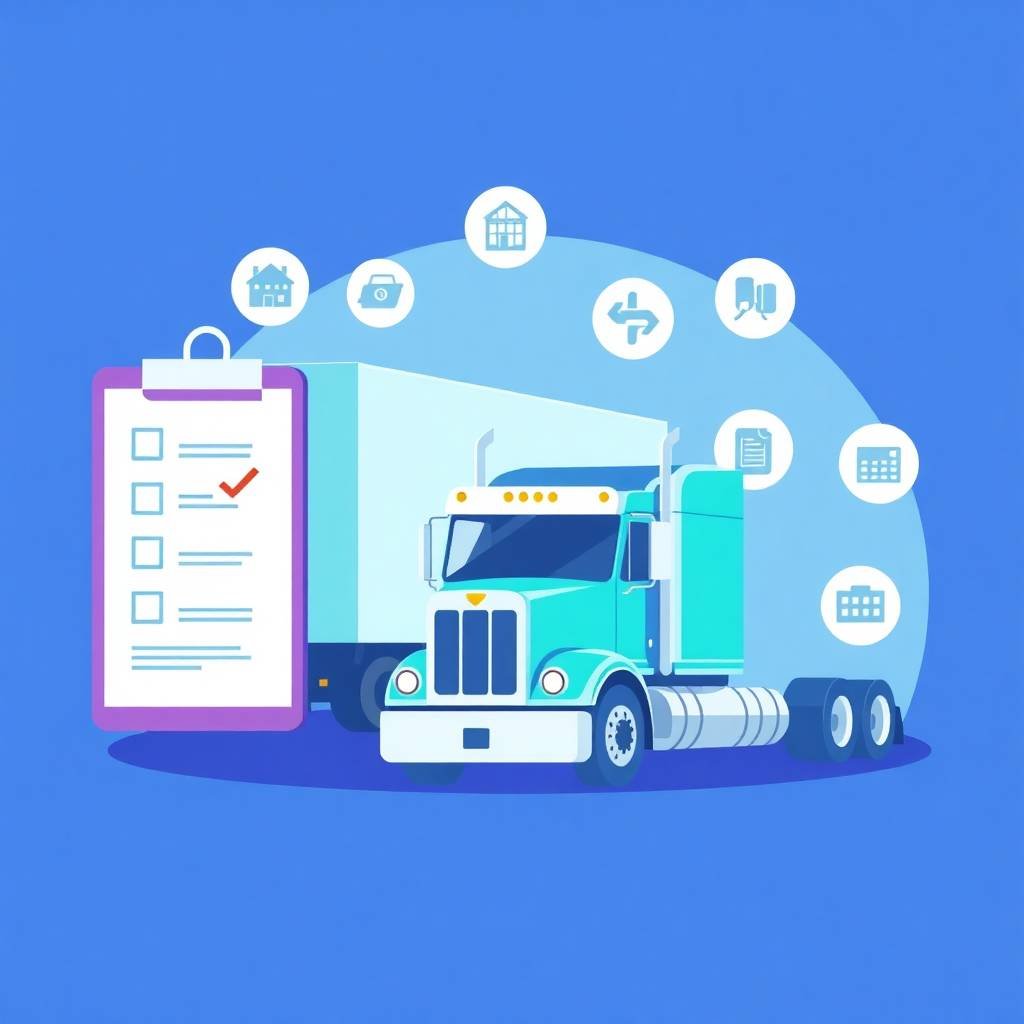1. Understand the FMCSA Random Testing Rate Requirements for 2025
Navigating Random DOT Drug Testing Requirements is a critical part of staying compliant with FMCSA regulations in 2025. These requirements ensure that motor carriers maintain a drug-free workforce, which directly supports road safety and operational reliability.
What Are the 2025 FMCSA Random Testing Rate Requirements?
According to the Federal Motor Carrier Safety Administration (FMCSA), the current Random DOT Drug Testing Requirements mandate that carriers randomly test at least 50% of their CDL drivers annually for controlled substances and 10% for alcohol. These percentages are reviewed yearly and can shift based on compliance data and industry trends. Staying updated on changes is crucial, especially with increased enforcement and auditing initiatives in 2025.
For a deeper understanding of how these rates are determined, refer to official sources like the U.S. Department of Transportation and the White House Office of National Drug Control Policy.
Why FMCSA Is Cracking Down in 2025
Non-compliance with Random DOT Drug Testing Requirements leads to serious consequences—ranging from fines and downgraded CSA scores to out-of-service orders. These enforcement measures are especially harsh for those with violations in areas like DQ File Requirements or FMCSA Safety Measurement System (SMS) scores.
To avoid these pitfalls, check out our dedicated services for Drug and Alcohol Testing Management and DQ File Setup and Monitoring.
Who Must Comply?
Any CDL driver operating a vehicle that requires a DOT number must comply with Random DOT Drug Testing Requirements. This applies to both large fleets and independent owner-operators. Learn more about our FMCSA Compliance Services for Owner Operators and UCR Filing Assistance tailored for small carriers.
Avoiding Common Compliance Mistakes
Too often, carriers fall short by failing to maintain testing pools or properly document their programs. Explore our post on FMCSA Compliance Mistakes to avoid these issues.
If you’re unsure where to begin, our DOT Compliance Checklist offers a complete overview of what you need.
Preparing for a DOT Audit in 2025
FMCSA audits in 2025 will aggressively evaluate adherence to Random DOT Drug Testing Requirements. Don’t wait to be flagged—explore our DOT Audit Preparation Services and visit the FMCSA Clearinghouse Compliance page for recent changes.
You can also schedule a consultation to assess your company’s readiness for a surprise audit.
Stay Informed and Proactive
At Truckers Compliance Hub, we publish ongoing guidance on Drug and Alcohol Testing Compliance and provide in-depth tools like our IFTA, IRP, and BOC-3 Support services.
You’ll find more helpful insights at:
- FMCSA Compliance Help for Trucking Companies
- FMCSA Compliance Services for Owner Operators – Expanded Guide
We’re committed to helping you master Random DOT Drug Testing Requirements and achieve full FMCSA compliance in 2025.
Important Resources:
Review our Disclaimer, Privacy Policy, and Terms of Service to understand how we protect your data and deliver services professionally.
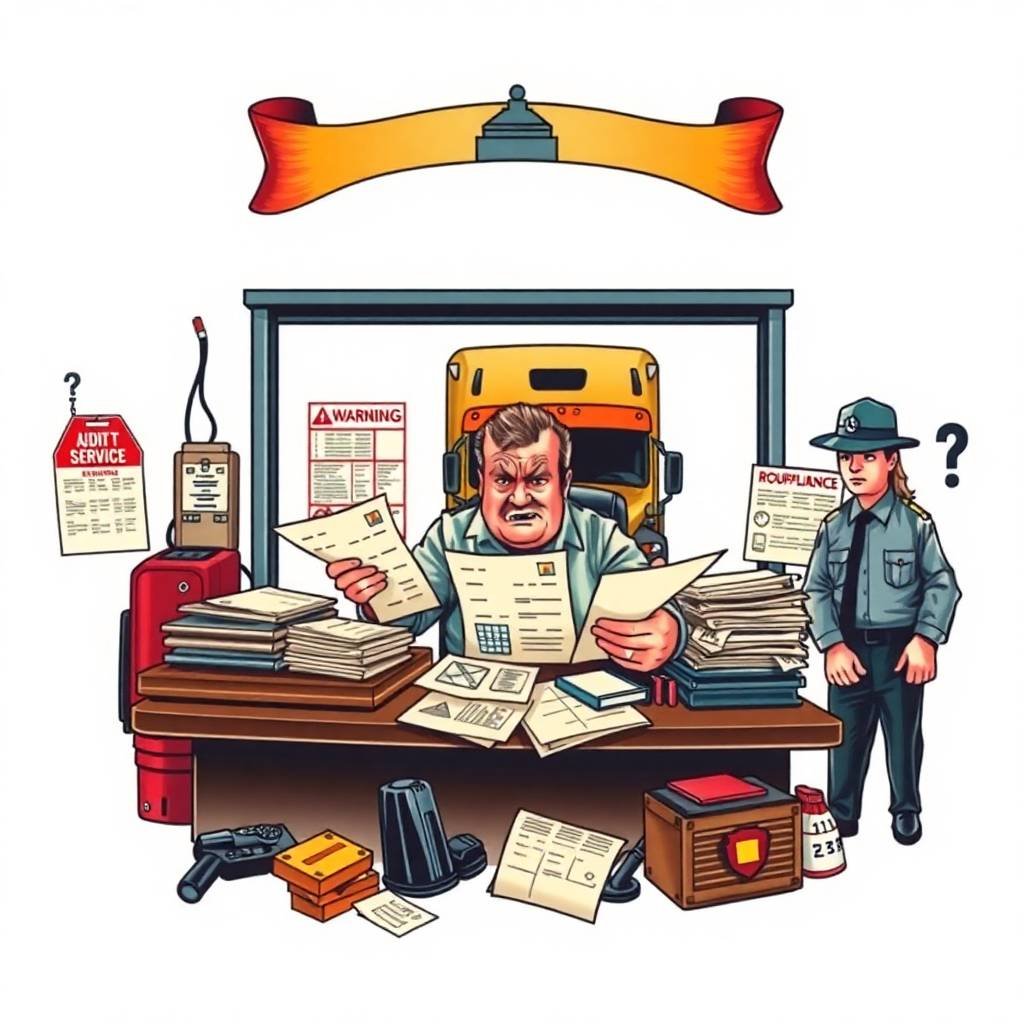
2. Create a Legally-Sound Random Testing Policy
To ensure your fleet remains compliant with FMCSA standards and avoid penalties, it is essential to establish a legally-sound policy that aligns with Random DOT Drug Testing Requirements. These federal mandates are non-negotiable and affect all CDL drivers operating vehicles in interstate commerce. Without proper planning and documentation, your business risks fines, suspensions, and even disqualification.
Why You Need a Formal Policy
Under FMCSA regulations, every motor carrier must implement a written drug and alcohol testing policy that clearly outlines procedures for meeting Random DOT Drug Testing Requirements. The U.S. Department of Transportation and White House Office of National Drug Control Policy also emphasize enforcement of drug-free transportation policies to ensure public safety.
Failure to comply can lead to DQ File Violations or trigger audits that expose additional issues. If you need help with preparing your policy, visit our DOT Audit Preparation service page.
Key Elements of a Compliant Testing Policy
A compliant policy must include:
- Procedures for random selection using scientifically valid methods
- Timing and frequency aligned with FMCSA’s annual testing rates
- Clear notification, documentation, and confidentiality protocols
- A list of consequences for refusal or failed tests
Our Drug and Alcohol Testing Management services help you build and enforce this policy seamlessly.
Additionally, review the FMCSA Clearinghouse Compliance Guide to ensure your policy supports required reporting.
Avoid Costly Mistakes
Improper implementation of Random DOT Drug Testing Requirements can result in lower CSA scores and failed audits. Carriers commonly overlook random pool updates and secure data handling—topics we explore in detail in our article on FMCSA Compliance Mistakes.
For a broader overview, access our DOT Compliance Checklist or Driver Qualification File Requirements.
How to Get Started
To build a strong foundation for compliance, begin by partnering with experts who understand Random DOT Drug Testing Requirements. You can schedule a consultation with our compliance team today or explore our services like DQ File Setup and Monitoring and UCR Filing Assistance.
Stay up to date with insights from Truckers Compliance Hub and read our Drug and Alcohol Testing Compliance resources for continued support.
Support for Fleets and Owner-Operators
Whether you’re a fleet manager or independent driver, we offer tailored FMCSA Compliance Services for Owner Operators and FMCSA Compliance Help for Trucking Companies. For added support, our IFTA, IRP, and BOC-3 Support can help you remain fully operational.
Helpful Resources
Stay informed with our FMCSA Compliance Services Guide for Owner Operators and don’t forget to review our Disclaimer, Privacy Policy, and Terms of Service for legal transparency.
A well-crafted, compliant policy around Random DOT Drug Testing Requirements is not just a regulation—it’s a roadmap to a safer, more accountable fleet.
3. Use a Scientifically Valid Random Selection Process
When it comes to DOT compliance, using a scientifically valid random selection process is not optional—it’s a regulatory requirement. Motor carriers must comply with all Random DOT Drug Testing Requirements established by the Federal Motor Carrier Safety Administration (FMCSA) and other federal bodies to ensure safety in the transportation industry.
Understanding and properly implementing this process is critical not only for avoiding penalties but also for upholding a professional safety standard. If you need tailored guidance, you can schedule a consultation with our DOT compliance team today.
What Is a Scientifically Valid Random Selection Process?
To meet Random DOT Drug Testing Requirements, employers must select drivers from a testing pool using a method that gives each employee an equal chance of being selected every time. According to the U.S. Department of Transportation and supported by White House safety initiatives, this process must be free of bias and cannot be based on suspicion or routine scheduling.
Software systems that utilize computer-generated algorithms are typically the best choice for maintaining regulatory integrity and audit-readiness. Non-compliance or inconsistency in your method may lead to DQ File Violations or even an FMCSA audit. Preparation for such scenarios is crucial, and our DOT Audit Preparation Services are designed to help.
How to Stay Compliant Year-Round
Annual minimum testing rates are updated by FMCSA based on industry-wide data. Make sure your program reflects current thresholds, which you can track through our FMCSA Safety Measurement System (SMS) 2025 update page.
We also recommend reviewing the Drug and Alcohol Testing Compliance Guide and using our Drug and Alcohol Testing Management service to automate your process and eliminate risks.
Policy and Documentation Support
Proper documentation of your random selection process is a key part of fulfilling Random DOT Drug Testing Requirements. This includes showing how selections were made, when tests were administered, and storing this data securely.
Refer to our FMCSA Clearinghouse Compliance guide to learn more about how and when to report results.
For complete internal readiness, review the DOT Compliance Checklist and make sure your Driver Qualification Files are current. For ongoing support, check out our DQ File Setup and Monitoring service.
Don’t Let Mistakes Derail Your Business
Many carriers unintentionally fail to meet Random DOT Drug Testing Requirements due to outdated processes or misunderstandings. Learn from industry missteps in our guide on FMCSA Compliance Mistakes, and stay proactive with help from Truckers Compliance Hub.
Our additional services like UCR Filing Assistance and IFTA, IRP, and BOC-3 Support are also available to streamline your compliance obligations.
Additional Resources
- FMCSA Compliance Help for Trucking Companies
- FMCSA Services for Owner Operators
- Owner Operator Compliance Support
For more information, please review our Disclaimer, Privacy Policy, and Terms of Service.
By using a valid, documented, and compliant random selection process, your fleet will meet all Random DOT Drug Testing Requirements—protecting your business, your drivers, and the public.
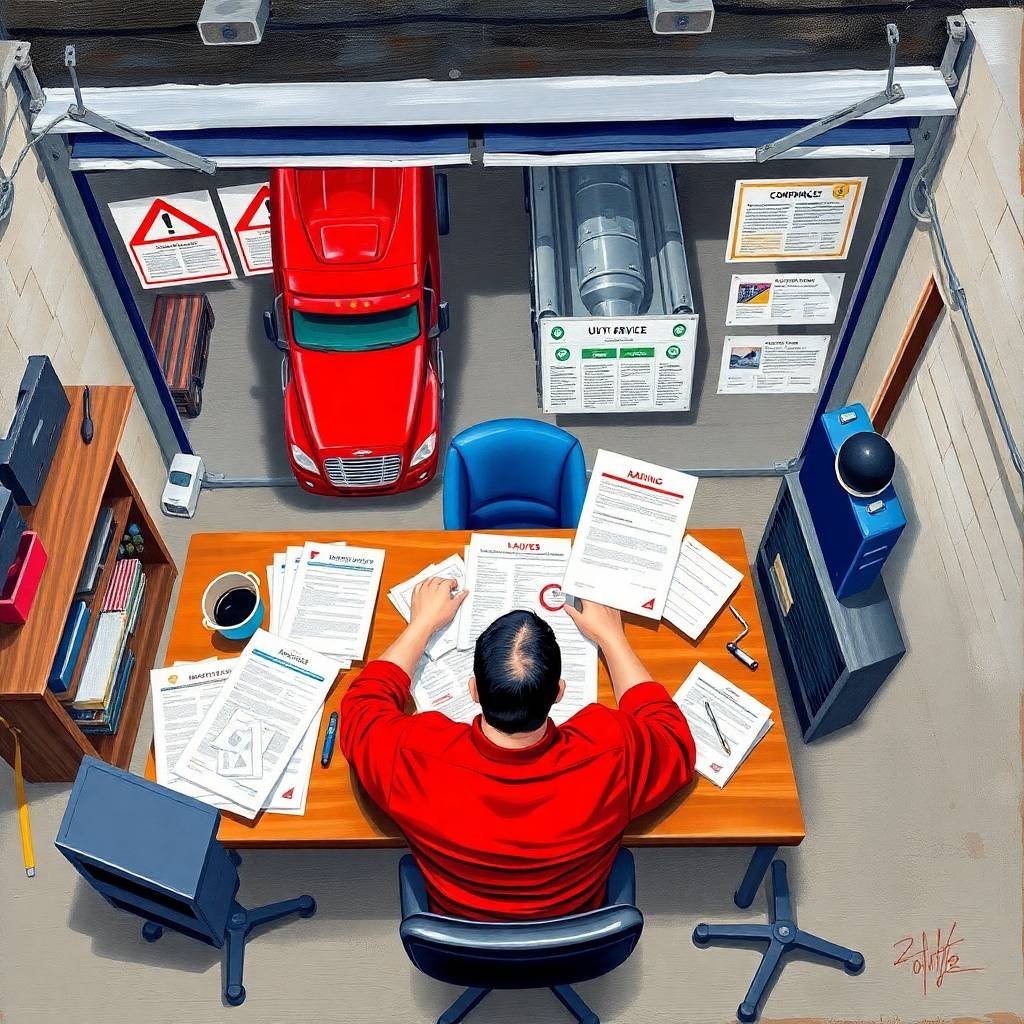
4. Maintain Proper Testing Records for Audits
Staying compliant with Random DOT Drug Testing Requirements isn’t just about testing your drivers—it’s also about maintaining accurate and up-to-date documentation. The Federal Motor Carrier Safety Administration (FMCSA) mandates that employers maintain proper drug and alcohol testing records for all CDL drivers. These records are critical during audits, and failure to produce them can result in costly violations or even loss of operating authority.
If you’re uncertain whether your recordkeeping meets regulatory standards, you can schedule a consultation today to speak with our compliance specialists.
Why Recordkeeping Matters for Compliance
Proper documentation serves as your first line of defense during an FMCSA audit. As outlined by the U.S. Department of Transportation and aligned with safety goals emphasized by the White House, recordkeeping confirms that your company is compliant with Random DOT Drug Testing Requirements and ready to respond to official requests. Audit preparation is no small matter, and we recommend reviewing our DOT Audit Preparation Guide for 2025 to ensure your files are in order.
What Records You Must Retain
To fully satisfy Random DOT Drug Testing Requirements, motor carriers must retain the following:
- Random selection documentation
- Notification forms
- Test results
- Refusal-to-test records
- Substance abuse professional (SAP) referrals
- Return-to-duty documentation
- Follow-up testing plans
Our Drug and Alcohol Testing Management service is designed to help businesses automate and secure these vital records.
You can find more guidance in our article on Drug and Alcohol Testing Compliance, which outlines the complete testing process, from pre-employment to post-accident protocols.
Avoiding Common Documentation Pitfalls
Many carriers unknowingly violate Random DOT Drug Testing Requirements by failing to maintain complete or properly organized files. Read our analysis of FMCSA Compliance Mistakes to learn from common missteps. Incomplete Driver Qualification Files or outdated data may result in citations or more severe enforcement action. To avoid these issues, consider using our DQ File Setup and Monitoring service.
You’ll also want to routinely reference our DOT Compliance Checklist and stay updated with the FMCSA Safety Measurement System SMS 2025 for evolving industry metrics.
Get Professional Compliance Help
Maintaining accurate records is a core component of fulfilling your obligations under Random DOT Drug Testing Requirements. Our FMCSA Clearinghouse Compliance Guide can help you ensure that your reporting is consistent with federal mandates.
For full support, explore our additional services:
- UCR Filing Assistance
- IFTA, IRP & BOC-3 Support
- FMCSA Compliance Help for Trucking Companies
- FMCSA Compliance Services for Owner Operators
- More Support for Owner Operators
Stay current with our latest posts and insights by visiting Truckers Compliance Hub. For all compliance-related concerns, review our Disclaimer, Privacy Policy, and Terms of Service.
By diligently maintaining your testing records, you can meet Random DOT Drug Testing Requirements with confidence—and keep your business moving forward.
5. Train Supervisors to Identify Reasonable Suspicion
Properly training supervisors to identify reasonable suspicion is a key element of complying with Random DOT Drug Testing Requirements. The Federal Motor Carrier Safety Administration (FMCSA) mandates that supervisors overseeing commercial drivers must be trained to recognize signs of drug and alcohol misuse in the workplace. This goes hand in hand with having a solid testing policy and a scientifically valid selection process.
If your company hasn’t implemented supervisor training yet, now is the time. Schedule a one-on-one consultation to review your compliance strategy.
Reasonable Suspicion and DOT Requirements
While Random DOT Drug Testing Requirements focus on unannounced and unbiased testing, reasonable suspicion testing is equally important. Supervisors must be able to observe and document behavioral, physical, and performance indicators of potential substance misuse. The U.S. Department of Transportation outlines that at least 60 minutes of training on both alcohol and controlled substances is required for compliance.
We’ve detailed this process in our Drug and Alcohol Testing Compliance article, which is an essential read for supervisors responsible for making informed decisions.
Building an Effective Training Program
A legally sound supervisor training program should include the following:
- Understanding the goals of Random DOT Drug Testing Requirements
- Recognizing signs of impairment
- Properly documenting observations
- Knowing how to initiate a reasonable suspicion test
- Handling sensitive situations professionally and legally
The FMCSA requires companies to maintain training records, which can be critical during audits. For a broader compliance review, check our DOT Audit Preparation 2025 guide.
Why Supervisor Training Supports Compliance
A well-trained supervisor is an asset in preventing violations. Missteps can lead to significant issues, including DQ File Violations or non-compliance with the FMCSA Clearinghouse. Training is not just a best practice—it’s a regulatory necessity tied directly to the effectiveness of your overall DOT Compliance Checklist.
For more on avoiding mistakes, read our post on FMCSA Compliance Mistakes, which outlines how gaps in supervisor training can lead to failed audits.
Staying Ahead with Full-Service Support
As part of meeting Random DOT Drug Testing Requirements, we offer services that make compliance easier, including Drug and Alcohol Testing Management, DQ File Setup and Monitoring, and DOT Audit Preparation.
For full compliance support, see our additional services:
- UCR Filing Assistance
- IFTA, IRP, BOC-3 Support
- FMCSA Services for Trucking Companies
- Owner Operator Compliance Services
- Alternate Owner Operator Services
Explore our latest compliance insights at Truckers Compliance Hub and stay aligned with federal initiatives outlined by the White House.
Before implementing training policies, review our Disclaimer, Privacy Policy, and Terms of Service.
In conclusion, investing in proper supervisor training ensures your team can confidently enforce Random DOT Drug Testing Requirements, protecting your drivers, your reputation, and your business.

6. Follow Up on Missed and Post-Accident Tests Immediately
Staying compliant with Random DOT Drug Testing Requirements doesn’t stop with scheduling tests — it also demands timely follow-up on missed or post-accident tests. The FMCSA mandates clear procedures for addressing both scenarios, and any lapse can expose your company to serious regulatory risks, especially during audits or inspections.
To build a compliant operation and avoid costly mistakes, schedule a consultation today to review your testing program.
The Consequences of Missed Tests
According to the U.S. Department of Transportation, any driver selected under Random DOT Drug Testing Requirements must report for testing immediately upon notification. If a driver misses a test without a valid reason, the incident must be thoroughly documented and addressed in line with your internal policies and federal guidelines.
Failure to follow up on missed tests can trigger violations. Learn more about how this impacts your record-keeping and safety score in our guide on FMCSA Compliance Mistakes.
For a full audit-readiness checklist, explore our DOT Compliance Checklist.
Post-Accident Testing: No Time to Waste
Post-accident testing is another essential component of Random DOT Drug Testing Requirements. If an accident meets specific criteria, such as fatalities or citations with towing or injuries, employers must ensure the driver is tested within 8 hours for alcohol and 32 hours for controlled substances.
The window for compliance is tight, and delays can result in failed audits and potential DQ file violations. Our Driver Qualification File Requirements article offers critical insights for managing compliance documents related to testing.
Documenting and Reporting Test Results
Documentation is a cornerstone of compliance. Under Random DOT Drug Testing Requirements, test results — including follow-ups on missed or post-accident tests — must be stored securely and made available for FMCSA audits. Proper reporting to the FMCSA Clearinghouse is also required for certain violations and refusals.
Need help building a system that keeps everything in order? We provide expert DQ File Setup and Monitoring and DOT Audit Preparation.
Full-Service Solutions to Meet Testing Requirements
At Truckers Compliance Hub, we simplify the complexity of meeting Random DOT Drug Testing Requirements. Our Drug and Alcohol Testing Management service ensures no test is missed, and all follow-ups are handled correctly. We also support UCR Filing Assistance and IFTA, IRP, BOC-3 Support, helping you maintain full regulatory alignment.
Explore our broader compliance solutions for trucking companies, owner-operators, and individual operators.
Visit Truckers Compliance Hub for more expert articles, such as how the FMCSA Safety Measurement System 2025 may impact your operations.
Stay current with evolving federal policy by monitoring WhiteHouse.gov and the DOT for regulatory changes that affect Random DOT Drug Testing Requirements.
Before implementing any policy changes, be sure to review our Disclaimer, Privacy Policy, and Terms of Service.
7. Integrate Random Testing into Your Safety Program
For motor carriers, compliance with Random DOT Drug Testing Requirements is more than just checking a regulatory box — it’s a vital component of a robust safety program. The Federal Motor Carrier Safety Administration (FMCSA) mandates that every DOT-regulated employer implements a random drug and alcohol testing program as part of its comprehensive approach to driver safety.
If you’re unsure how to effectively integrate testing into your safety protocols, schedule a one-on-one consultation today to assess your compliance strategies.
Why Random Testing Is Critical to Safety
The goal of Random DOT Drug Testing Requirements is to deter substance use and identify violations before they lead to costly accidents or FMCSA enforcement actions. Random testing should not operate in isolation. Instead, it should be woven into your ongoing driver safety program, complemented by regular training, performance monitoring, and compliance documentation.
For more on how this fits into a full DOT compliance plan, check out our DOT Compliance Checklist.
Building a Policy-Aligned Testing Framework
Integrating Random DOT Drug Testing Requirements means aligning your internal procedures with federal regulations, including proper selection methods, testing intervals, and documentation standards. Employers must ensure all records, including refusals and test results, are stored and reported per FMCSA Clearinghouse rules.
Companies often make costly missteps here. Learn how to avoid them by reviewing our article on FMCSA Compliance Mistakes.
If you’re just getting started or need help restructuring your files, our team provides DQ File Setup and Monitoring services to simplify your workflow.
Strengthen Safety Through Supervisor Engagement
Supervisors play a key role in maintaining a compliant and proactive testing program. Training them to recognize signs of substance misuse enhances your ability to meet Random DOT Drug Testing Requirements and supports your larger safety goals. For practical guidance, explore our insights on Drug and Alcohol Testing Compliance.
Documentation and Audit Preparation
Your program’s credibility lies in your documentation. FMCSA audits and roadside inspections frequently include a review of random testing records, so it’s essential to be prepared. Our DOT Audit Preparation services ensure you’re always ready for compliance reviews.
Visit our post on DOT Audit Preparation 2025 for a detailed checklist and risk areas to monitor.
Comprehensive Compliance Support
Whether you’re managing multiple drivers or operating as an owner-operator, our full suite of services — including Drug and Alcohol Testing Management, UCR Filing Assistance, and IFTA, IRP, BOC-3 Support — is designed to help you meet every element of Random DOT Drug Testing Requirements.
For more resources tailored to your business, visit:
- FMCSA Compliance Services for Owner-Operators
- FMCSA Compliance Help for Trucking Companies
- Owner-Operator Compliance Services
To stay current with federal regulations, refer to Transportation.gov and monitor policy shifts at WhiteHouse.gov.
Explore more updates and expert insights at Truckers Compliance Hub.
Before implementing any policy, review our Disclaimer, Privacy Policy, and Terms of Service for legal clarity.
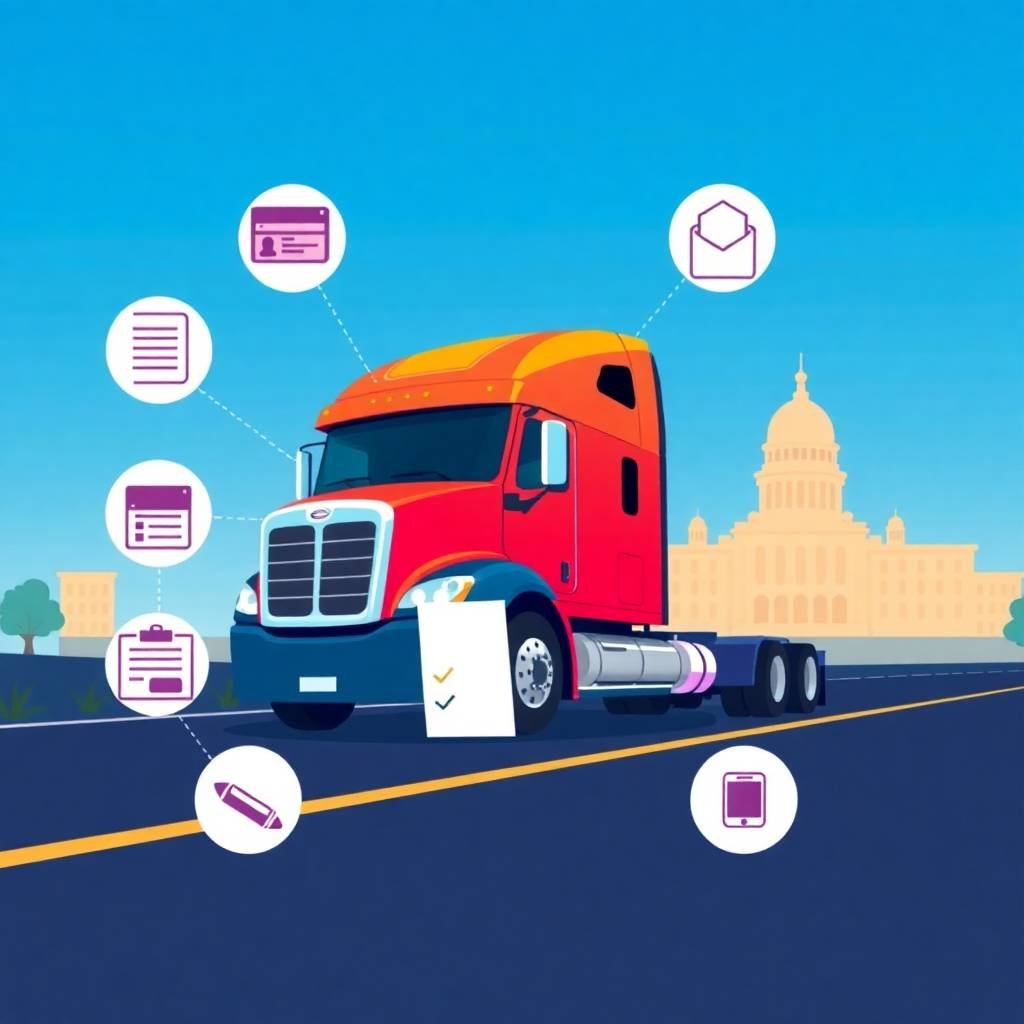
8. DOT Compliance Checklist for Trucking Companies: Random Testing Essentials
Meeting Random DOT Drug Testing Requirements is not just a legal necessity for trucking companies — it’s a vital part of maintaining public safety and protecting your fleet. With ongoing oversight from the FMCSA and requirements outlined by Transportation.gov, ensuring your company’s drug and alcohol testing program is compliant is critical.
To help you stay ahead, we’ve compiled a comprehensive checklist that focuses on Random DOT Drug Testing Requirements as a key element of your DOT compliance strategy.
Understanding the Core of Random Testing
Random drug and alcohol testing is one of the most scrutinized elements of DOT compliance. Under federal law, employers must conduct random tests on drivers operating commercial motor vehicles. These Random DOT Drug Testing Requirements are designed to be unannounced, scientifically selected, and evenly spread throughout the calendar year.
Learn more about integrating these practices in our Drug and Alcohol Testing Compliance guide.
Step-by-Step DOT Compliance Checklist
1. Develop a Clear Testing Policy
Ensure your company policy reflects all Random DOT Drug Testing Requirements, including selection processes, frequency, and proper documentation. Policies must align with the rules set by the FMCSA Clearinghouse.
2. Maintain Accurate Records
Inaccurate or incomplete testing records are a common cause of DQ File Violations. Make sure your documentation includes test dates, results, refusals, and follow-ups. Our DQ File Setup and Monitoring service can help ensure accuracy.
3. Train Supervisors for Reasonable Suspicion
Training supervisors to recognize signs of impairment is essential. This supports Random DOT Drug Testing Requirements and prepares your company for DOT audit preparation. Stay ready with our DOT Audit Preparation services.
4. Conduct Post-Accident and Return-to-Duty Tests
Besides random testing, DOT rules mandate post-accident, reasonable suspicion, and return-to-duty testing. Don’t risk compliance errors — our Drug and Alcohol Testing Management program ensures proper execution.
5. Use Technology to Track Compliance
Leverage tools like the FMCSA Safety Measurement System to monitor your safety and testing metrics. Also, use our FMCSA Compliance Checklist to identify gaps.
Avoid Common Mistakes
Too often, trucking companies fall short of Random DOT Drug Testing Requirements by overlooking key documentation or using unqualified testing providers. Review common FMCSA Compliance Mistakes to avoid fines and audit failures.
If you’re unsure where to begin, schedule a consultation today.
Get Help with Full Compliance
From UCR Filing Assistance to IFTA, IRP, and BOC-3 Support, our team helps carriers stay in line with federal regulations.
Browse more resources:
- FMCSA Compliance Help for Trucking Companies
- Compliance Services for Owner Operators
- Owner-Operator Compliance Services 2
View our latest updates at Truckers Compliance Hub and stay up to date with regulatory guidance from WhiteHouse.gov.
Legal and Privacy Notices
Before implementing changes to your program, review our Disclaimer, Privacy Policy, and Terms of Service.
9. Report Positive Test Results to the FMCSA Clearinghouse Promptly
The FMCSA Drug and Alcohol Clearinghouse plays a pivotal role in monitoring commercial driver compliance. Among the key obligations for employers is the prompt reporting of positive test results. Ensuring accuracy and timeliness in this process is vital to staying compliant with Random DOT Drug Testing Requirements and protecting the safety of our highways.
Why Reporting Matters in DOT Compliance
Under the Federal Motor Carrier Safety Administration, employers must report positive drug and alcohol test results to the FMCSA Clearinghouse. This reporting requirement is closely linked to Random DOT Drug Testing Requirements, which help ensure that all drivers are subject to fair and consistent testing procedures.
Failure to report promptly can lead to severe penalties and compromises public safety. For a better understanding of these rules, visit Transportation.gov and WhiteHouse.gov for official federal guidance.
The Role of Random Testing in the Clearinghouse
All CDL employers are mandated to comply with Random DOT Drug Testing Requirements throughout the year. These random tests serve as a proactive method to detect and deter substance abuse before incidents occur. If a random test results in a positive finding, it must be entered into the Clearinghouse immediately. Learn more in our Drug and Alcohol Testing Compliance guide.
Timely reporting ensures that the driver’s status is updated and that no safety-sensitive functions are performed until the return-to-duty process is completed.
DOT Compliance Checklist: Positive Results
To stay on top of reporting obligations, follow this quick checklist aligned with Random DOT Drug Testing Requirements:
- Verify Test Results: Confirm the accuracy of lab-confirmed positives.
- Log into the FMCSA Clearinghouse: Report the positive result promptly.
- Suspend Safety-Sensitive Duties: Prevent the driver from operating until cleared.
- Initiate Return-to-Duty Process: Partner with qualified SAPs as required.
See our complete DOT Compliance Checklist for more detailed guidance.
Services That Keep You Compliant
Trucking companies often struggle with keeping up with multiple DOT compliance areas. That’s why we offer solutions like Drug and Alcohol Testing Management, DQ File Setup and Monitoring, and DOT Audit Preparation.
Failure to comply with Random DOT Drug Testing Requirements can lead to DQ File Violations and trigger audits. Prepare now with our support for DOT Audit Preparation 2025.
Avoid Costly FMCSA Compliance Mistakes
Don’t let overlooked reporting requirements harm your safety record or lead to fines. See our list of FMCSA Compliance Mistakes to identify gaps and improve your internal protocols.
Monitor your fleet’s performance with the FMCSA Safety Measurement System (SMS) and maintain complete Driver Qualification Files.
More Compliance Support
Need expert help? We provide tailored services for fleets and owner-operators:
- UCR Filing Assistance
- IFTA, IRP, and BOC-3 Support
- FMCSA Compliance Services for Owner Operators
- Help for Trucking Companies
- Owner-Operator Services
You can always schedule your consultation to discuss your compliance needs one-on-one.
Stay Informed and Protected
For updates, visit Truckers Compliance Hub and read our Disclaimer, Privacy Policy, and Terms of Service.
Meeting your Random DOT Drug Testing Requirements is not optional—it’s essential. Act now to ensure full compliance and a safer transportation network for all.
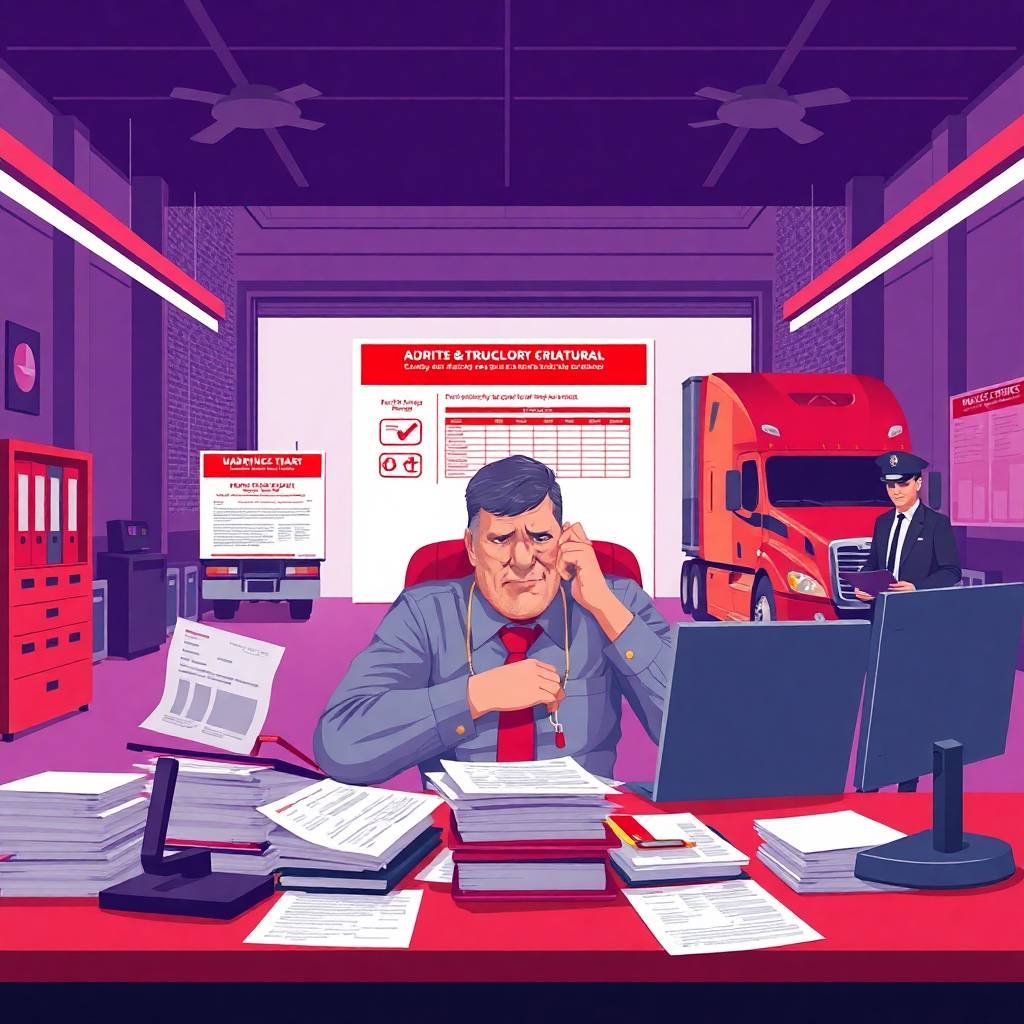
10. Partner with a Third-Party Administrator (TPA) for Program Management
Staying compliant with Random DOT Drug Testing Requirements can be overwhelming for motor carriers, especially small fleets and owner-operators. With the complex regulations outlined by the Federal Motor Carrier Safety Administration (FMCSA), many companies turn to a trusted Third-Party Administrator (TPA) to streamline compliance and program management. Partnering with a qualified TPA not only saves time but also reduces the risk of costly violations.
Why a TPA is Essential for Random Testing Compliance
Administering a compliant drug and alcohol testing program under the Department of Transportation (DOT) guidelines requires attention to detail. From managing random selections to proper documentation, partnering with a TPA ensures all aspects of Random DOT Drug Testing Requirements are handled efficiently. TPAs like those at Truckers Compliance Hub oversee crucial responsibilities such as scheduling, recordkeeping, and reporting to the FMCSA Clearinghouse.
TPA Benefits for Your DOT Program
TPAs offer end-to-end services to support compliance, including:
- Random Selection Management
- Test Result Documentation
- Clearinghouse Reporting
- Return-to-Duty Coordination
Outsourcing to a TPA helps carriers avoid FMCSA compliance mistakes and ensures prompt reporting of test results, a critical part of Random DOT Drug Testing Requirements.
If you’ve ever encountered DQ file violations or struggled with your Driver Qualification File Requirements, a TPA can also monitor your compliance proactively.
Comprehensive Program Management Services
Truckers Compliance Hub offers integrated Drug and Alcohol Testing Management services that align with federal mandates. We assist companies in meeting their annual testing quotas while remaining compliant with all facets of Random DOT Drug Testing Requirements.
Additional services include:
Our DOT Compliance Checklist helps motor carriers stay organized, while our insights on the FMCSA Safety Measurement System 2025 highlight key performance factors for safer operations.
Tailored Compliance for Every Carrier
Whether you’re a fleet manager or an independent owner-operator, we offer solutions customized for your needs. Learn more from our detailed resources:
- FMCSA Compliance Services for Owner Operators
- Help for Trucking Companies
- Owner-Operator Compliance Services
Take Action: Schedule Your Compliance Consultation
Don’t wait for a DOT audit to discover compliance gaps. Let our team help you meet your Random DOT Drug Testing Requirements seamlessly. Schedule your 30-minute appointment today and take proactive control of your compliance program.
Stay informed with our latest posts and review our Disclaimer, Privacy Policy, and Terms of Service for full transparency.
Partnering with a TPA is a smart move in today’s regulatory landscape. Ensure your company consistently meets Random DOT Drug Testing Requirements and operates with confidence.
What are Random DOT Drug Testing Requirements and who must comply?

Random DOT Drug Testing Requirements are mandatory regulations established by the FMCSA requiring safety-sensitive CDL drivers to undergo unannounced drug and alcohol testing throughout the year. These tests must be conducted at scientifically valid random intervals to ensure fairness and compliance. All employers of CDL drivers operating in interstate or intrastate commerce must follow these requirements. To ensure your program aligns with these mandates, consider using Drug and Alcohol Testing Management Services for full compliance support.
How often must random drug and alcohol tests be conducted under DOT guidelines?

Under Random DOT Drug Testing Requirements, employers must annually test at least 50% of their CDL drivers for drugs and 10% for alcohol. These percentages are set by FMCSA and may change based on industry testing data. To keep up with current mandates and prepare for any audits, our DOT Audit Preparation service helps ensure your testing program meets all compliance thresholds.
What documentation is required to prove compliance with Random DOT Drug Testing Requirements?

To remain compliant with Random DOT Drug Testing Requirements, you must maintain documentation such as the random selection list, test results, chain of custody forms, and service agreements with your TPA. Missing or outdated documentation can result in violations during an audit. Our DQ File Setup and Monitoring service helps you manage and store necessary records to satisfy FMCSA inspectors.
Can owner-operators manage their own random testing programs?

Owner-operators are required to participate in a consortium or use a third-party administrator to fulfill Random DOT Drug Testing Requirements. Managing testing independently is not compliant under FMCSA rules. To avoid compliance pitfalls, owner-operators can partner with our Drug and Alcohol Testing Management Services for seamless integration into a compliant testing program.
How can I stay updated on changes to Random DOT Drug Testing Requirements in 2025?

DOT regulations evolve, and staying updated is critical for maintaining compliance. To meet Random DOT Drug Testing Requirements in 2025, subscribe to FMCSA announcements and use resources that track regulatory changes. Partnering with a provider offering UCR Filing Assistance or comprehensive compliance services ensures you’re always aligned with the latest federal rules.
Igor Iturriaga is a transportation compliance expert and founder of Dynamic 305 Miami LLC. He helps owner-operators and fleets stay FMCSA-compliant and audit-ready. https://www.linkedin.com/in/igor-iturriaga-64503217/
